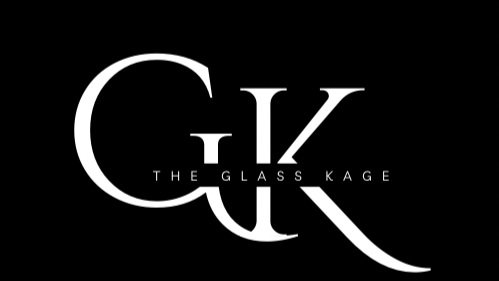Own Your Sound: A Real-World Guide to Music Copyright
Music Copyright
In a digital era where music is streamed, sampled, and scraped by algorithms, protecting your work isn’t just smart it’s survival.
Whether you’re a beatmaker, vocalist, or full-stack producer, understanding music copyright is the difference between owning your catalog and watching it disappear into the feed.
At glasskage.com, we don’t just document the culture—we help creators protect it.
What Is Music Copyright?
Copyright gives you the legal right to control how your original music is used. It protects two key things:
In music, it protects:
The song idea (melody, lyrics, structure)
The recording (the actual file you made)
You're automatically the owner when you create it—but you need to register it to protect it in court or get certain royalties.
Why Copyright Matters
Proof of Ownership: If someone steals your song, registration is your legal receipt.
Monetization: You can’t collect sync or statutory royalties without it.
Licensing & Deals: Labels and publishers won’t touch unregistered work.
Legacy: Copyright lasts your lifetime + 70 years. That’s generational protection.
Check our artist spotlight on Bury Me At Midnight, a producer who’s building a catalog with intention, not just output.
How to Copyright Your Music
(Step-by-Step)
1. Prepare Your Files
For compositions: lyric sheets, sheet music, or demo recordings
For sound recordings: final mix or master (MP3, WAV, etc.)
2. Register with the U.S. Copyright Office
Choose “Register a Work” → then “Sound Recording” or “Musical Work”
Use the Standard Application for singles or Group Registration for albums
Upload your files and pay the fee ($45–$65)
🧾 Pro Tip: Registering an album as a group saves money and time.
3. Get Confirmation
You’ll receive a certificate by email or mail
Processing takes 3–6 months, but protection starts the moment you submit
We walk through this process in more depth on glasskage.com, where our educational blogs are built for artists at every level.
What About International Protection?
Thanks to the Berne Convention, your U.S. registration is honored in over 170 countries. But enforcement varies—so if you’re targeting specific markets, consider registering there too.
What Rights Do You Get?
Once registered, you control:
Reproduction – who can copy or sample your work
Distribution – who can sell or stream it
Derivative Works – remixes, covers, interpolations
Public Performance – radio, venues, streaming
Tools & Resources
glasskage.com – for artist spotlights, legal breakdowns, and editorial commentary
Common Mistakes to Avoid
Skip registration and hope your song is “protected enough”
Think mailing it to yourself counts (it doesn’t)
Forget to agree on splits if you collaborate with others
Final Word from The Glass Kage
Copyright isn’t just paperwork—it’s power. It’s how you protect your voice, your value, and your vision in a system that often forgets who made the music in the first place.
At glasskage.com, we document the artists who build mood over metrics. And that starts with owning your work.
FOLLOW OUR SOCIALS
YouTube: @TheGlassKageFacebook: @TheGlassKageInstagram: @TheGlassKageThreads: @TheGlassKageMentioned Artist Links
Spotify: @Bury_Me_At_MidnightApple Music: @Bury_Me_At_MidnightWritten by Jesse at The Glass Kage, editor of KAGE//FEED and advocate for independent artistry. Jesse blends cultural commentary with real-world strategy to help underground voices rise above the noise.



